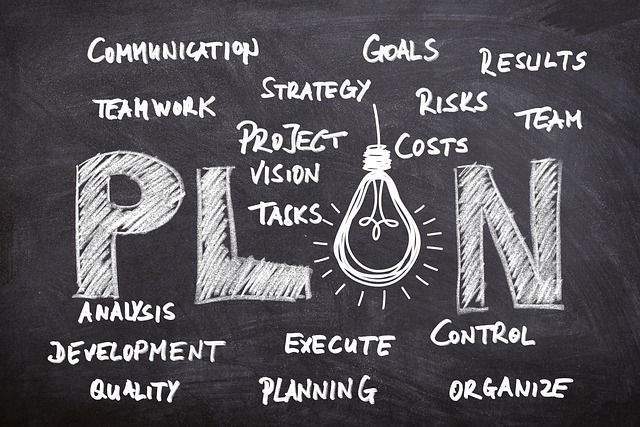The Importance of Time Management
Time management plays a crucial role in today’s fast-paced world. Everyone seems to be in a race against the clock, balancing responsibilities from both personal and professional spheres. This juggling act often leads to stress, anxiety, and a decrease in productivity. However, possessing effective time management skills can considerably enhance one’s ability to maintain a work-life balance. It’s about more than just allocating time effectively; it’s about ensuring that you are using your time in alignment with your personal values and long-term goals.
Understanding time management involves recognizing how you spend your hours. Many people underestimate the impact of distractions and poor planning. For instance, consider how often you check your phone during a work session. Those distractions can add up, stealing precious time that could instead be used for meaningful tasks. As you develop your time management skills, you begin to strategize how to minimize these interruptions. Various techniques, such as the Pomodoro Technique or the Four Quadrants Method, can provide effective frameworks for improving your efficiency. The Pomodoro Technique, for example, encourages you to work intensely for 25 minutes and then take a five-minute break. This approach increases focus and maintains mental agility, allowing you to manage your tasks effectively.
Moreover, efficient time management naturally leads to increased productivity. When you work smarter, rather than harder, you reach your objectives faster and with less stress. Implementing a daily planner or digital task manager helps keep your priorities clear and manages your day more effectively. Writing down tasks creates a visual representation of your day, helping you to stay focused on completion rather than feeling overwhelmed by everything you have to do. You can also allocate time for personal pursuits, which is vital for maintaining a healthy work-life balance. Over time, you’ll likely find that your stress levels reduce as you gain more control over your day-to-day tasks.
Understanding Work-Life Balance
Work-life balance is often misunderstood. Many people think it’s about strict boundaries between work and personal life. In reality, it’s more about integration and making choices that reflect your values and priorities. It’s about enjoying your work while also carving out time for family, friends, and self-care. This balance is essential not only for your mental and physical health but also for enhancing your overall quality of life.
Take a step back and evaluate how you spend your time. Are you dedicating enough time to activities that bring you joy? Achieving work-life balance might be about saying no to extra work tasks that encroach upon personal time. It’s essential to recognize that productivity doesn’t only happen in the office; it occurs in downtime as well. When you prioritize activities that help you relax—think yoga, reading, or simply spending time with loved ones—you recharge your mind and spirit. With proper time management, you allocate your working hours effectively and free up personal time.
Furthermore, technology impacts work-life balance significantly. With constant connectivity, it’s easier than ever to send a quick email or respond to a work-related text after hours. This tendency can blur the lines between work and personal life, leading to burnout. Many companies are adopting policies that promote work-life balance, such as flexible working hours and remote work options. These initiatives allow employees to manage their work schedules, aligning better with their personal lives. As employees become more empowered to manage their time, they inevitably feel more satisfied and less stressed.
Strategies for Effective Time Management
When it comes to implementing time management strategies, there isn’t a one-size-fits-all approach. What works for one person may not necessarily work for another. Experimentation may be necessary to discover the techniques that resonate with your lifestyle. One starting point is to establish clear, achievable goals. Setting SMART goals—Specific, Measurable, Achievable, Relevant, Time-bound—means you have a roadmap to follow. These goals help you prioritize your tasks and align them with your long-term aspirations.
Next, consider your workspace and how it impacts your productivity. A cluttered environment can lead to a cluttered mind. Take time to organize your physical or digital workspace. Use tools like checklists and productivity apps to keep track of your tasks. The right tools can facilitate your time management process significantly. With a variety of options available, you might find relief in utilizing project management software like Trello or Asana. This software allows you to visualize your daily responsibilities and engage with your tasks more efficiently.
Don’t forget about the power of delegation and seeking help when necessary. Many individuals resist asking for assistance due to fear of burdening others or losing control over tasks. In reality, collaboration often leads to better outcomes. Establish a culture in your workplace—or even in your home—where asking for help is viewed positively. Look for those opportunities to share responsibilities, so you can keep moving towards your personal and professional goals. This delegation frees you to focus on high-priority projects, enhancing your overall productivity.
Overcoming Time Management Challenges
Challenges to effective time management often arise, so it’s vital to anticipate and address them proactively. One common issue is procrastination. It happens to the best of us. Everyone has stared down a daunting task and decided to binge-watch a few episodes of their favorite show instead. This flawed coping mechanism often leads to a last-minute rushjob and unnecessary stress. Recognizing your procrastination triggers can help you develop techniques to combat it. For instance, breaking tasks into smaller, more manageable parts can make daunting work feel more achievable.
Another significant challenge arises from poor planning. Have you ever sat down to work, only to find that you feel lost, unsure of where to start? This lack of direction can lead to wasted time and frustration. To overcome this, create a weekly plan, outlining your priorities. Taking a little time each Sunday evening to map out the week ahead sets a positive tone. Additionally, keep time open for interruptions; life happens, after all. Be flexible, and when unexpected events occur, adjust your schedule rather than feeling distressed by them.
Lastly, setting boundaries is essential yet often neglected. Many people struggle with the idea of saying no. Whether it’s extra projects at work or social invitations, it’s okay to prioritize your time. Establish boundaries that allow you to focus on what truly matters in both your professional and personal life. Communicate your boundaries clearly to colleagues and friends, and don’t hesitate to enforce them. Learning to say no is perhaps one of the most empowering strategies in managing your time effectively and maintaining work-life balance.
The Impact of Time Management on Productivity
Time management directly correlates with productivity levels. When you manage your time effectively, you accomplish tasks more efficiently. Good time managers know their most productive hours and plan critical tasks during those blocks of time. Whether you’re an early bird or a night owl, it’s vital to recognize when you are at your best. Start your day by tackling your most challenging tasks then; you’ll feel a sense of accomplishment that drives your motivation throughout the day.
Moreover, productivity thrives on motivation and clarity. Having clear goals fuels the desire to accomplish tasks. This clarity helps eliminate unnecessary tasks that do not add value. Instead of floundering through a day filled with busywork, effective time management channelizes energy toward meaningful tasks. For example, once you begin each day with a clear intention, you not only boost your output but also the quality of your output. The satisfaction of completing a task accurately and promptly enhances productivity. It’s a cycle: better time management leads to better productivity, leading to higher job satisfaction, which further motivates effective time use.
Incorporating regular breaks into your time management provides a significant boost to your productivity as well. Research suggests that taking short breaks throughout your day can elevate mental performance. When you step away from your desk, engage in physical activity or enjoy a brief moment of mindfulness, you rejuvenate your mind. This practice creates a refreshed perspective when you return to your work, enhancing your creativity and problem-solving abilities. By using time management principles to include breaks, you achieve a better balance and overall productivity.
Final Thoughts on Work-Life Balance Through Time Management
Achieving an optimal work-life balance is an ongoing journey, one that evolves with your life circumstances and career developments. The interplay between time management and work-life balance is undeniable. Developing effective time management skills grants you the financial and emotional freedom to enjoy both your work and your personal life. Whether it’s spending quality time with loved ones or pursuing a passion, managing your time allows for these joys. It’s critical to remember that each individual’s balance will look different. What brings happiness and satisfaction to one may not apply to another.
As you enhance your time management skills, take care to re-evaluate your priorities often. Life shifts; responsibilities change. Thus, stay adaptable in your approach. Practice gratitude for the moments spent, whether in the office or at home. You’ll find that this perspective creates a positive feedback loop that reinforces your commitment to both productivity and relaxation. Maintaining this balance ultimately leads to a fulfilling, enriched life.
FAQ
- What are some effective time management techniques?
- Some effective techniques include the Pomodoro Technique, setting SMART goals, using task lists, and prioritizing tasks using the Eisenhower Box.
- How can I improve my work-life balance?
- Improving work-life balance involves setting clear boundaries, prioritizing personal time, and effectively managing your schedule to include downtime.
- Why is time management important for productivity?
- Time management helps you focus on the most critical tasks, reduces stress, and increases efficiency, ultimately leading to improved productivity.
- How can technology aid in time management?
- Technology offers tools such as task management apps, digital calendars, and reminder systems that help prioritize tasks and keep you organized.
- What are the signs of poor time management?
- Signs of poor time management include constantly missing deadlines, feeling overwhelmed with tasks, and frequently working overtime without completing significant work.



